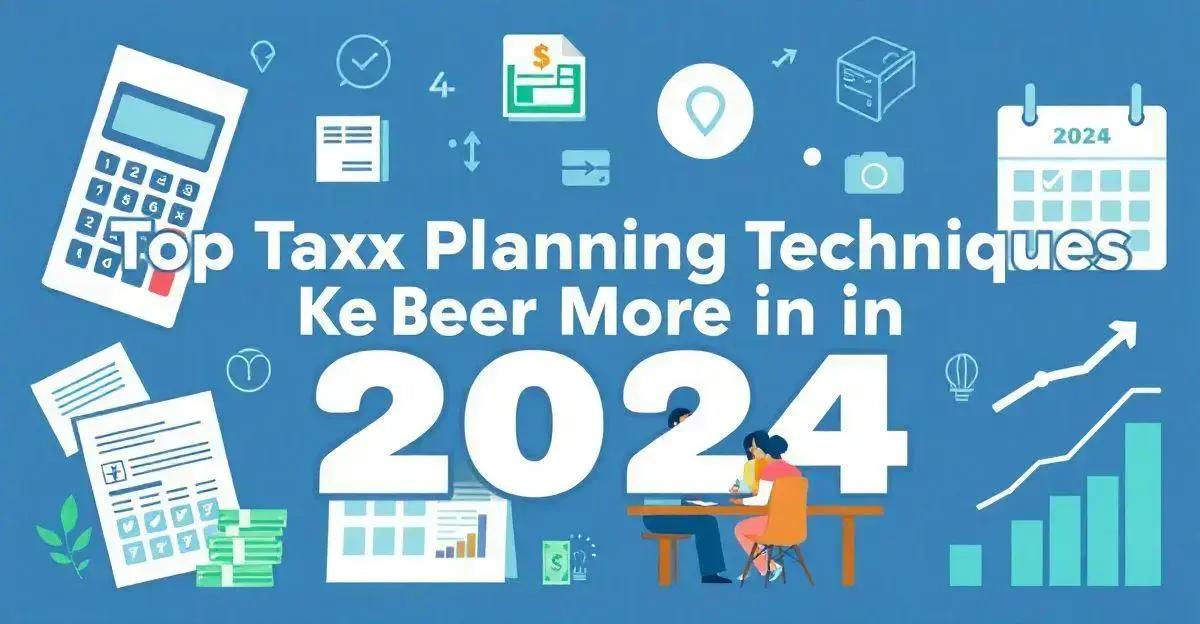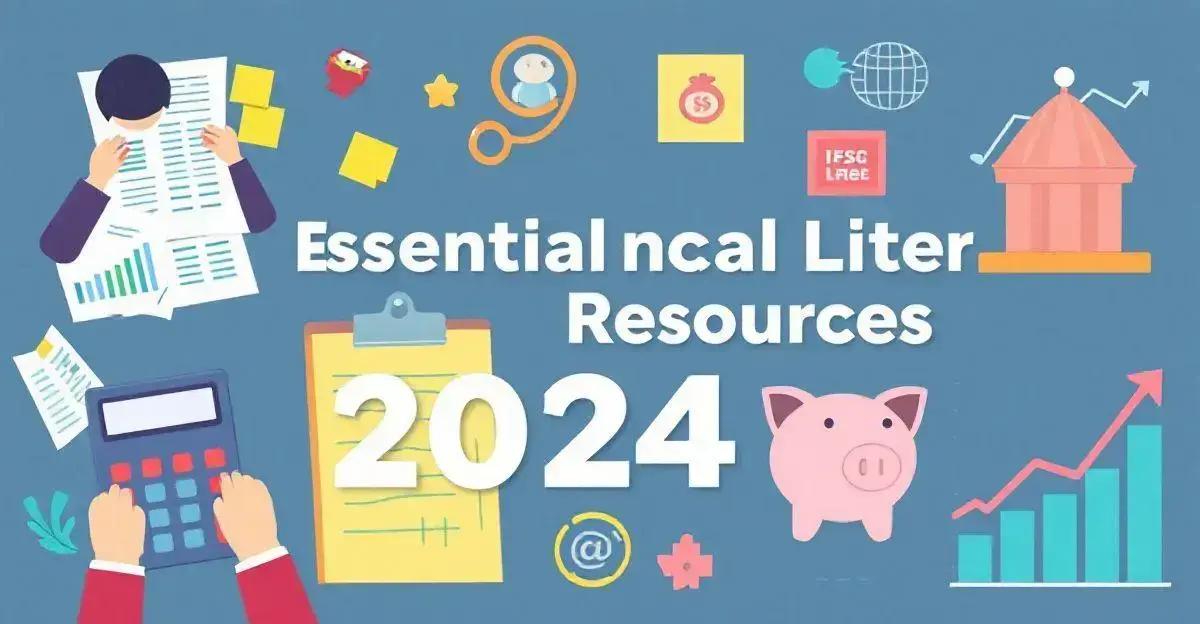Are you tired of feeling overwhelmed by the complexities of tax planning? With the right strategies, you can minimize your tax liability and maximize your refund.
Tax planning is a crucial aspect of financial planning, and it’s essential to understand the various strategies and techniques available to you.
In this post, we’ll explore the best tax planning strategies for individuals and businesses, and provide tips on how to avoid common mistakes.
Understanding Tax Planning
Tax planning is the process of planning and organizing your finances to minimize your tax liability and maximize your refund. It involves understanding the tax laws and regulations that apply to your situation, and implementing strategies to reduce your tax burden. Effective tax planning can help you achieve financial stability, build wealth, and secure your financial future.
As an individual, you have various tax planning strategies at your disposal. You can claim deductions for charitable donations, mortgage interest, and property taxes. You can also contribute to tax-advantaged retirement accounts, such as 401(k) or IRA. Additionally, you can reduce your tax liability by itemizing deductions or using tax credits. It’s essential to consult with a tax professional to determine the best tax planning strategies for your individual situation.
Businesses have unique tax planning needs, including minimizing tax liabilities, claiming deductions and credits, and complying with tax regulations. Effective tax planning for businesses involves understanding the tax laws and regulations that apply to your business, and implementing strategies to reduce your tax burden. This may include claiming deductions for business expenses, such as equipment purchases or employee salaries, and taking advantage of tax credits for research and development or renewable energy.
Retirement tax planning is crucial to ensure that you have a secure financial future. You can start by contributing to tax-advantaged retirement accounts, such as 401(k) or IRA. You can also claim deductions for retirement contributions and take advantage of tax credits for retirement savings. Additionally, you can consider Roth conversions, annuities, or other investment strategies to optimize your retirement income.
Making common tax planning mistakes can result in unnecessary tax liabilities and missed opportunities for tax savings. These mistakes include neglecting to claim deductions, failing to itemize deductions, and not taking advantage of tax credits. Additionally, failing to file tax returns on time or not paying taxes owed can result in penalties and interest. It’s essential to consult with a tax professional to avoid these common mistakes and ensure that your tax planning is effective.
Effective tax planning involves understanding the tax laws and regulations that apply to your situation, and implementing strategies to reduce your tax burden. By claiming deductions, taking advantage of tax credits, and consulting with a tax professional, you can minimize your tax liability and maximize your refund. Remember, tax planning is an ongoing process that requires regular review and adjustment to ensure that you are taking advantage of all available tax savings opportunities.
Tax Planning Strategies for Individuals

Tax planning strategies for individuals involve understanding the tax laws and regulations that apply to your situation. This includes claiming deductions for charitable donations, mortgage interest, and property taxes. Additionally, individuals can contribute to tax-advantaged retirement accounts, such as 401(k) or IRA, and take advantage of tax credits for education expenses or child care. Effective tax planning for individuals requires a comprehensive understanding of their financial situation and a tailored approach to minimize tax liability and maximize refund.
Tax planning strategies for businesses involve understanding the tax laws and regulations that apply to your business. This includes claiming deductions for business expenses, such as equipment purchases or employee salaries, and taking advantage of tax credits for research and development or renewable energy. Effective tax planning for businesses requires a thorough understanding of the tax implications of business decisions and a strategic approach to minimize tax liability and maximize profitability.
Tax planning strategies for retirement involve understanding the tax laws and regulations that apply to retirement accounts. This includes claiming deductions for retirement contributions and taking advantage of tax credits for retirement savings. Effective tax planning for retirement requires a comprehensive understanding of the tax implications of retirement income and a strategic approach to minimize tax liability and maximize retirement income.
Making common tax planning mistakes can result in unnecessary tax liabilities and missed opportunities for tax savings. These mistakes include neglecting to claim deductions, failing to itemize deductions, and not taking advantage of tax credits. Additionally, failing to file tax returns on time or not paying taxes owed can result in penalties and interest. It’s essential to consult with a tax professional to avoid these common mistakes and ensure that your tax planning is effective.
Effective tax planning involves understanding the tax laws and regulations that apply to your situation, and implementing strategies to reduce your tax burden. By claiming deductions, taking advantage of tax credits, and consulting with a tax professional, individuals and businesses can minimize their tax liability and maximize their refund or profitability. Remember, tax planning is an ongoing process that requires regular review and adjustment to ensure that you are taking advantage of all available tax savings opportunities.
Tax Planning for Businesses
Tax planning for businesses involves understanding the tax laws and regulations that apply to your business. As a business owner, you have various tax planning strategies at your disposal, including claiming deductions for business expenses, such as equipment purchases or employee salaries.
Additionally, you can take advantage of tax credits for research and development or renewable energy. Effective tax planning for businesses requires a thorough understanding of the tax implications of business decisions and a strategic approach to minimize tax liability and maximize profitability.
By claiming deductions, taking advantage of tax credits, and consulting with a tax professional, businesses can optimize their tax strategy and achieve their financial goals.
Tax Planning for Retirement

Retirement tax planning is crucial to ensure that you have a secure financial future. It involves understanding the tax laws and regulations that apply to your retirement accounts and implementing strategies to minimize your tax liability.
This includes claiming deductions for retirement contributions and taking advantage of tax credits for retirement savings. Additionally, you can consider Roth conversions, annuities, or other investment strategies to optimize your retirement income.
Effective tax planning for retirement requires a comprehensive understanding of the tax implications of retirement income and a strategic approach to minimize tax liability and maximize retirement income.
Common Tax Planning Mistakes to Avoid
Making common tax planning mistakes can result in unnecessary tax liabilities and missed opportunities for tax savings. These mistakes include neglecting to claim deductions, failing to itemize deductions, and not taking advantage of tax credits. Additionally, failing to file tax returns on time or not paying taxes owed can result in penalties and interest. It’s essential to consult with a tax professional to avoid these common mistakes and ensure that your tax planning is effective.
By being aware of these mistakes, you can take steps to correct them and optimize your tax strategy.
Conclusion: Effective Tax Planning

In conclusion, effective tax planning is crucial for individuals, businesses, and retirees alike.
By understanding the tax laws and regulations that apply to your situation, and implementing the right strategies, you can minimize your tax liability and maximize your refund.
Remember to avoid common tax planning mistakes, and consult with a tax professional to ensure that your tax planning is effective.
With the right approach, you can achieve financial stability, build wealth, and secure your financial future.
Frequently Asked Questions about Tax Planning
What is tax planning?
Tax planning is the process of planning and organizing your finances to minimize your tax liability and maximize your refund.
How can I claim deductions?
You can claim deductions by itemizing your deductions on your tax return, such as charitable donations, mortgage interest, and property taxes.
What are tax credits?
Tax credits are amounts that reduce your tax liability dollar-for-dollar, such as education credits, child care credits, and retirement savings credits.
How can I minimize my tax liability?
You can minimize your tax liability by claiming deductions, taking advantage of tax credits, and consulting with a tax professional.
What are common tax planning mistakes to avoid?
Common tax planning mistakes to avoid include neglecting to claim deductions, failing to itemize deductions, and not taking advantage of tax credits.
How can I ensure that my tax planning is effective?
You can ensure that your tax planning is effective by consulting with a tax professional, staying up-to-date with tax laws and regulations, and regularly reviewing your tax strategy.



